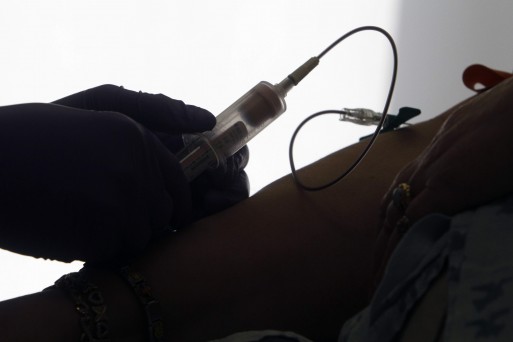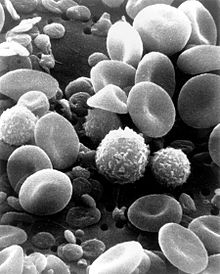For the most part, cancer biopsies tend to involve surgeons having to operate and remove pieces of wherever the suspicious cells and tissues that could be tumors might reside. According to a recent New York Times article, however, there is a new option called a “liquid biopsy,” a blood test that “is showing promise in finding tiny snippets of cancer DNA in a patient’s blood.”
It also “will enable oncologists to quickly figure out whether a treatment is working and, if it is, to continue monitoring the treatment in case the cancer develops resistance.”
This innovation offers so much hope for the future because it can be much less painful than a standard biopsy or CT scan for patients. It also “will enable oncologists to quickly figure out whether a treatment is working and, if it is, to continue monitoring the treatment in case the cancer develops resistance.” Attaining this knowledge could allow these unsuccessful treatments to be stopped sooner as well as “allowing doctors to try alternatives.”
As Dr. José Baselga is quoted saying in the article, the highest hope for the blood test is that “this could change forever the way we follow up not only response to treatments but also the emergence of resistance, and down the line could even be used for really early diagnosis.” Before getting your hopes too high that you can forgo a traditional biopsy or CT scan at this point in time, “researchers caution that more evaluations of the test’s accuracy and reliability are needed” because “only small studies in particular cancers, including lung, colon and blood cancer” have happened.
One of the most promising results from the studies so far had to do with “a National Cancer Institute study published this month in The Lancet Oncology, involving 126 patients with the most common form of lymphoma, found the test predicted recurrences more than three months before they were noticeable on CT scans.” Another bonus discovery from the same study was that “the liquid biopsies also identified patients unlikely to respond to therapy.”
The blood tests could greatly save much of the time and uncertainty about whether the cancer is responding to treatment and on its way to remission, and most importantly save more lives from succumbing to the cruelty of cancer. The current methods are just not helpful when it comes to one’s quality of life because “patients often have scans to determine if tumors are shrinking, but it can take weeks or months before a tumor looks smaller on a scan, in part because a scan shows not just the cancer but also connective tissue, immune system cells and scars at the site.” The extra items shown in scans lead to the fact that “doctors can be fooled into thinking a tumor is present when, in fact, it is gone.”
What are your thoughts about this innovation of a blood test alternative to biopsies and CT scans? What do you hope will happen if more studies continue to show promising results? We look forward to your comments below.

 The Promise and Hope a New Blood Test Brings as an Alternative to Cancer Biopsies
The Promise and Hope a New Blood Test Brings as an Alternative to Cancer Biopsies





 Our Monthly Tip: Make an “In Case of Death” File to Ease Loved One’s Grief
Our Monthly Tip: Make an “In Case of Death” File to Ease Loved One’s Grief
 Passing of Beloved Comedian Births a New Comedy Festival
Passing of Beloved Comedian Births a New Comedy Festival
















Traditional liquid biopsy requires 10-20 mL of blood. CirculoGene’s blood-drop liquid biopsy is coming to play a vital role in this precision medicine era. Its the future!
Report this comment